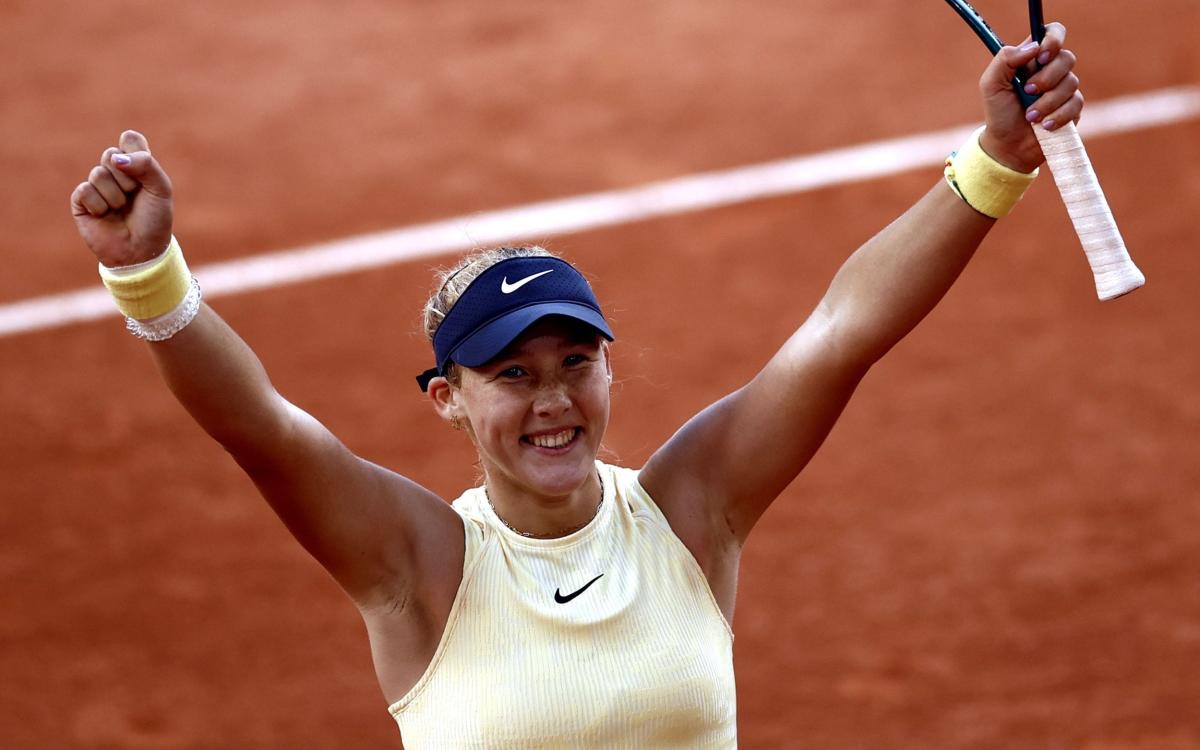Sports
Russian 17-year-old Mirra Andreeva beats second seed Aryna Sabalenka in French Open shock

The French Open has its youngest semi-finalist for 27 years after 17-year-old Mirra Andreeva kept “a cold head”, in her own words, to oust an off-colour Aryna Sabalenka.
This match was a weirdly compelling spectacle, pitting the teenage challenger against a woman who was struggling to hit through her forehands because of what looked like intense stomach cramps.
Andreeva should probably have made shorter work of this contest than she did, given the state of her opponent. In an echo of Novak Djokovic’s struggles against Francisco Cerundolo on Monday evening, Sabalenka was moving without her usual fluidity and apparently considering a mid-match retirement.
At one point in the first set, she drew her hand across her throat, as if to suggest that she was about to pull out. But she has never retired from a tennis match, and to her great credit, she fought all the way to the conclusion of her 6-7, 6-4, 6-4 defeat.
It was not clear exactly what the problem was, but there have been reports of illness doing the rounds in the locker-room. Daniil Medvedev was said to have been struggling during his fourth-round loss at the hands of Alex de Minaur on Monday, although he observed locker-room protocol by not talking about it in his post-match press conference.
Andreeva’s unexpected win means that Saturday’s final will be, on paper, an easy result to call. We know that the two remaining players on the top half of the draw are both proven winners: namely, defending champion Iga Swiatek and reigning US Open champion Coco Gauff.
On the bottom half, however, we have a semi-final between Andreeva and Jasmine Paolini, the diminutive Italian who had upset Elena Rybakina in Wednesday’s opening match. Neither of them had been past the fourth round of a major before this event.
Andreeva is not a power player in the manner of Sabalenka and Rybakina, but she plays with soft hands and great intelligence. She kept moving Sabalenka around the court, exploiting her physical issues with clever angles and varied trajectories, and often throwing up lobs from defensive positions.
In fact, it was a lob that clinched the victory, although this one was a more attacking shot that arced over a stranded Sabalenka as she stood at the net.
Andreeva received warm applause at the conclusion of the match, which lasted 2hr 29min. She is a popular figure here, as we saw on Monday, when she knocked out the last remaining French player Varvara Gracheva but still heard the crowd chant her name during her post-match interview.
This was another fine display of creative strokeplay to bring back the memory of Martina Hingis – who was 16 when she reached the final here in 1997. At the present rate of progress, some insiders suggest that Andreeva could join the three leading Eastern Europeans (Swiatek, Sabalenka and Rybakina) as well as Gauff to create a new “Big Five” of tennis.


